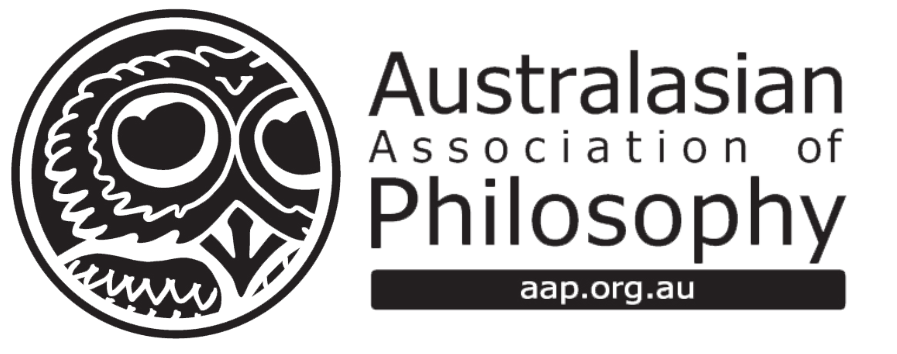Internships in Philosophy: An example and four Case Studies.

Impact and Engagement facilitated through UG Internships
The AAP encourages the involvement of UG Philosophy Programs and Departments in external internships with business, government and community organisations in order to (i) develop students’ ability to apply philosophical skills in practical settings; (ii) promote the relevance of philosophy to the community generally; (iii) provide opportunities for philosophers to develop research partners outside the university sector, and hence facilitate opportunities for (iv) Linkage funding and (v) demonstrating “impact and engagement”.

Background
We define a Philosophy Internship as a research project undertaken by a philosophy student for an Organisation outside the University. Typically the student intern produces a research report on a topic which will be of use to the community, business or government organisation. The Internship demonstrates the relevance of philosophy undergraduate study to community, business and government organisations. It also provides an opportunity for University philosophers to establish research partners with outside organisations. For these reasons, we are keen to promote the involvement by Australasian Philosophers in internship programs.
Work Ready initiatives and summer scholarships within the university are worthwhile projects but are not included here under Internships. We also do not cover overseas internships. For our purposes, an Internship involves the intern in conducting research for a community, business or government organisation. They are assessed on this research report rather than reflective diaries, the latter a common assessment tool in work-ready initiatives.

Current involvement by Departments of Philosophy in Australasia
At the present time Internships in philosophy are not common in Australasian Universities, a conclusion based on an informal survey of Heads of Philosophy Departments within Australasia.
In order to encourage Departments to take up the supervision of Philosophy Interns, we provide information on how Philosophy Internships are managed at the University of Adelaide in 2017. We also provide four case studies of Philosophy Internships undertaken at The University of Adelaide in recent years.
***We would welcome any contributions that other Universities offering Internships in Philosophy can make to this project.***

Philosophy Internships at the University of Adelaide
Prerequisites: Students must be a final year Undergrad and selection is competitive, based on student’s GPA.
Assessment:
7000 page report weighted at 70% (marked by Discipline based Supervisor); seminar presentation of project brief weighted at 10% (marked by Faculty Seminar Convenor) and a poster presentation of research outcomes weighted at 20% (marked by Faculty Seminar Convenor). The 7,000 report becomes the property of the Partner Organisation to use as they see fit.
Requirements at University:
At the University the students attend fortnightly Faculty run seminars on report writing etc. They also attend fortnightly meetings with their Discipline based supervisors.
Requirements of Partner Organisation:
Attendance at workplace for 4-7 hours per week or equivalent (such as 2 x five day blocks during non-teaching weeks). The Partner Organisation provides supervision to the intern and in some cases where travel is required, covers the cost of travel and accommodation.
Credits:
Either two courses towards a major in philosophy; or two electives; or two courses towards a minor in philosophy.
Examples of partner organisations:
Anglicare; Welcome Australia; Adelaide Thinkers in Residence Program; Jayco Group of Companies.
Case Studies

Case Study 1
Ideas of the Anthropocene: The Place of Aboriginal Philosophy in Contemporary Ecological Thought
The University of Adelaide
Partner: The Jayco Group of Companies
Supervisor: Professor Jenny McMahon
Student: Mahendra Chitrarasu
Student's statement:
I am undertaking a Bachelor of Arts (Advanced) in English and Philosophy. Completing a philosophy internship trained me to use the skills of philosophical analysis to think critically about a real world issue. It provided the space to extend myself beyond the usual demands of undergraduate coursework in a manner that resembled and provided solid preparation for the postgraduate study I am wanting to pursue. The real growth from the internship came from this freedom. I was able to work closely with my academic mentor, Professor Jennifer McMahon, to firstly identify, frame, and then deconstruct a problem facing the Jayco Group of Companies. I conducted research examining how Aboriginal traditional ecological knowledge and sustainable land management practices contain novel and under-studied strategies for global problems in the Anthropocene, such as climate change. My specific internship required interstate travel. That too proved beneficial. I developed skills in interviewing and archival research useful for any future research that requires similar methods. Altogether, the internship has facilitated a real development to my analytical mind and my ability to think more deeply about a given issue. For that, I'm very grateful and pleased.


Case Study 2
Welcome Australia: Minority Rights, 2016
The University of Adelaide
Partner: Welcome Australia
Supervisor: Dr. James Morauta
Student: Yasir Hussaini
Student’s statement:
“I have recently completed a concurrent degree of Psychology and Arts (major in Philosophy). Besides studies, I play table tennis and I am in the Australian Paralympic Squad, aiming to qualify for the Games in 2020. I work with the Afghan community offering table tennis classes. I love watching movies and taking photos. My plans for the future are open, I am currently doing work experience with the HR team at SAHMRI.
In the traditional format of the internship course students are asked to collaborate with the University and an organisation to work on a project beneficial to the organisation as well as addressing an issue in an academic field. I was fortunate enough to land an internship position working with Welcome to Australia.This was perfect as I got to work with people passionate about refugees and migrants, as I was once a refugee myself. From there, I wanted to address a philosophical issue behind refugees. In collaborating with the university and welcome Australia, we came to an understanding that it would be best to work separate projects for the university and welcome to Australia. This was perfect as I got to work with people passionate about refugees and migrants, as I was once a refugee myself. From there, I wanted to address a philosophical issue behind refugees. In collaborating with the university and welcome Australia, we came to an understanding that it would be best to work separate projects for the university and welcome to Australia.
My role as an intern for Welcome to Australia was to research and participate in the organisations’ events. I was assigned to work on a research project to give credibility to Welcome To Australia for possible future funding/grant submissions. This research would challenge my researching abilities. The most important practical lesson that I gained from working on this project was being resourceful; using all that is around to attain the information I needed. I heavily made use of the library research team to guide me to resources, which saved me a lot of time. Secondly, I developed my communication skills by liaising with the organisation and asking the right questions.
The main challenge of the internship was the philosophical paper. The internship offered me the freedom to address issues that I was most passionate about, with the guidance of a professor. I deliberated with Dr. James Morauta as my academic supervisor on the project. Although not specialising in the philosophy of minority rights, Dr. Morauta was enthusiastic about working and learning about this area. Consistent communication was essential to mould and form a structure for the paper. Working on this project further advanced my critical thinking ability as I was forced to research into an area with little background knowledge. It was difficult at first to grasp the nuances of the literature, but further reading and discussion allowed me to gain a deeper understanding of the literature. It was awesome to converse philosophically with a professor I admired.
In general, Robert and Amanda (in charge of the internship) were understanding and flexible with their treatment of students. The cared deeply about the well being of the students and quality of work produced. At times, the projects seemed too big to accomplish, conversations with Robert and Amanda gave me piece of mind and assurance that it is possible.
The internship is a great opportunity for students to get out of University format and work with organisations, and then work on an academic issue with professors at University. For any students thinking of taking on honors, the internship is a great taste of working on a thesis and collaborating with supervisors.”
- Purpose, History and Scope
- Aims and Objectives
- Expected Outcomes
- Methodologies and Activities
- Time Commitment
- Risk and Ethics
- Timeline

Case Study 3
An Evaluation of the Adelaide Thinkers in Residence, 2012
The University of Adelaide
Partner: Adelaide Thinkers in Residence
Supervisor: Professor Garrett Cullity
Student: Joseph McMillan
The research method involved:
- Academic inquiry over a range of fields including economics, sociology, political theory, philosophy, and psychology
-Interviews with partners, catalysts, staff, and implementers of the Thinkers in Residence program
-Live observations of the Thinkers team at work
-Examination of some popular media, news articles, and websites relevant to the Thinkers Program

Case Study 4
Participatory Communication in Project Development:
Applying Habermas to the Participatory Practices of Anglicare, 2011
The University of Adelaide
Partner: Anglicare
Supervisor: Professor Jenny McMahon
Student: Jake Cooper
The first task after the first visit to the workplace is to write a project brief in consultation with the university discipline-based supervisor. This includes:
Also, see the Example of Internship Poster provided as a pdf. The student speaks to this at a session open to students, staff and public at the completion of the semester. In addition to the project brief and poster, the student produces a 7,000 word report for the Partner Organisation.
Download example of Internship Poster Pdf

